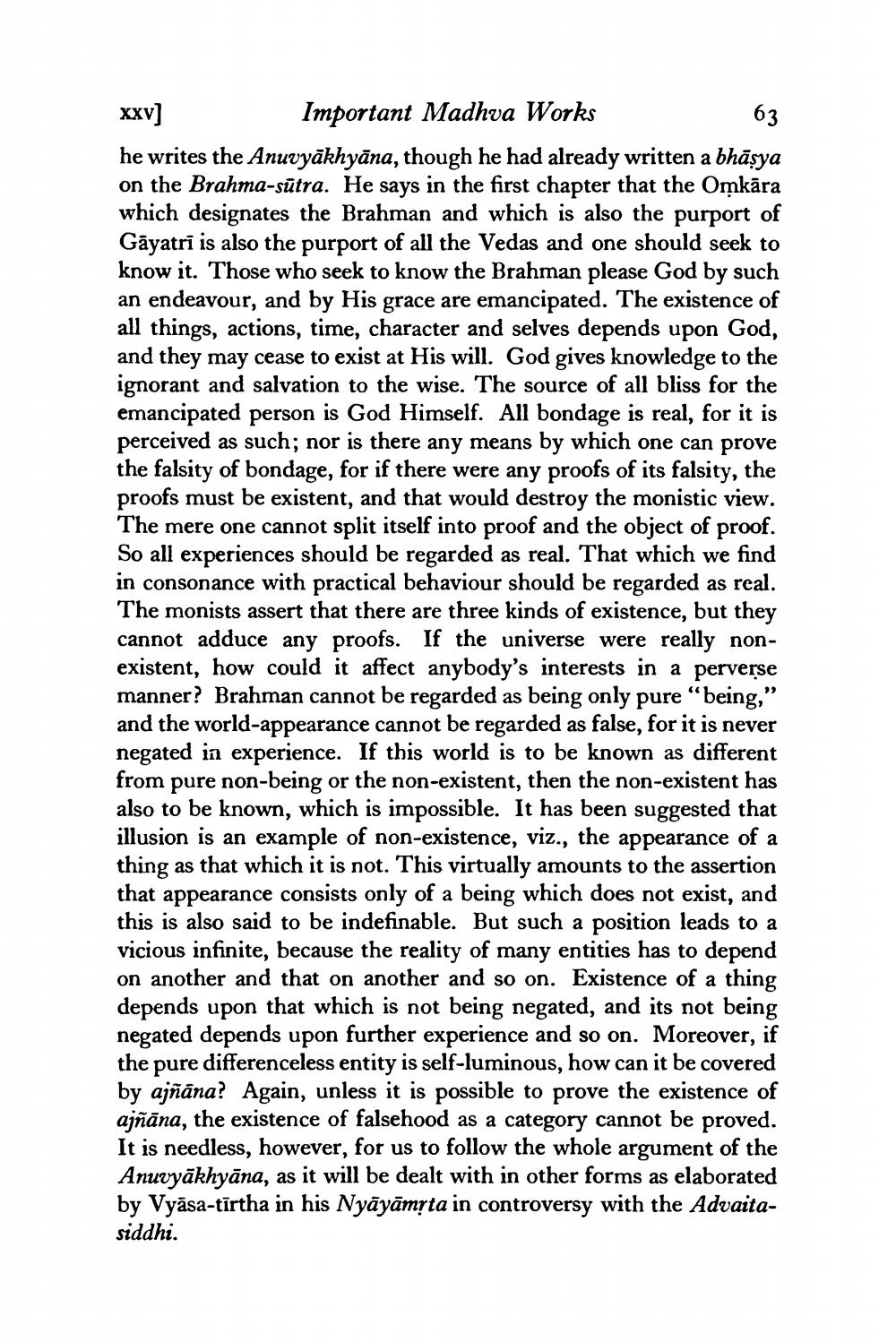________________
XXV]
Important Madhva Works he writes the Anuvyākhyāna, though he had already written a bhāsya on the Brahma-sūtra. He says in the first chapter that the Omkāra which designates the Brahman and which is also the purport of Gāyatri is also the purport of all the Vedas and one should seek to know it. Those who seek to know the Brahman please God by such an endeavour, and by His grace are emancipated. The existence of all things, actions, time, character and selves depends upon God, and they may cease to exist at His will. God gives knowledge to the ignorant and salvation to the wise. The source of all bliss for the emancipated person is God Himself. All bondage is real, for it is perceived as such; nor is there any means by which one can prove the falsity of bondage, for if there were any proofs of its falsity, the proofs must be existent, and that would destroy the monistic view. The mere one cannot split itself into proof and the object of proof. So all experiences should be regarded as real. That which we find in consonance with practical behaviour should be regarded as real. The monists assert that there are three kinds of existence, but they cannot adduce any proofs. If the universe were really nonexistent, how could it affect anybody's interests in a perverse manner? Brahman cannot be regarded as being only pure "being," and the world-appearance cannot be regarded as false, for it is never negated in experience. If this world is to be known as different from pure non-being or the non-existent, then the non-existent has also to be known, which is impossible. It has been suggested that illusion is an example of non-existence, viz., the appearance of a thing as that which it is not. This virtually amounts to the assertion that appearance consists only of a being which does not exist, and this is also said to be indefinable. But such a position leads to a vicious infinite, because the reality of many entities has to depend on another and that on another and so on. Existence of a thing depends upon that which is not being negated, and its not being negated depends upon further experience and so on. Moreover, if the pure differenceless entity is self-luminous, how can it be covered by ajñāna? Again, unless it is possible to prove the existence of ajñāna, the existence of falsehood as a category cannot be proved. It is needless, however, for us to follow the whole argument of the Anuvyākhyāna, as it will be dealt with in other forms as elaborated by Vyāsa-tīrtha in his Nyāyāmịta in controversy with the Advaitasiddhi.




